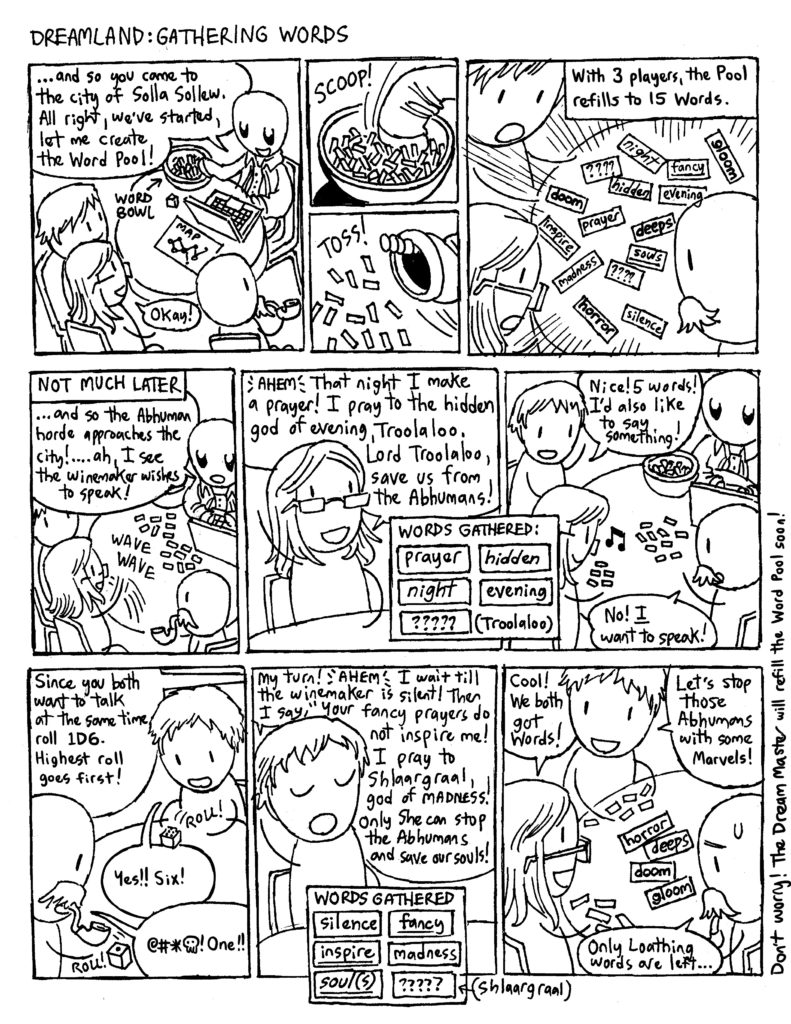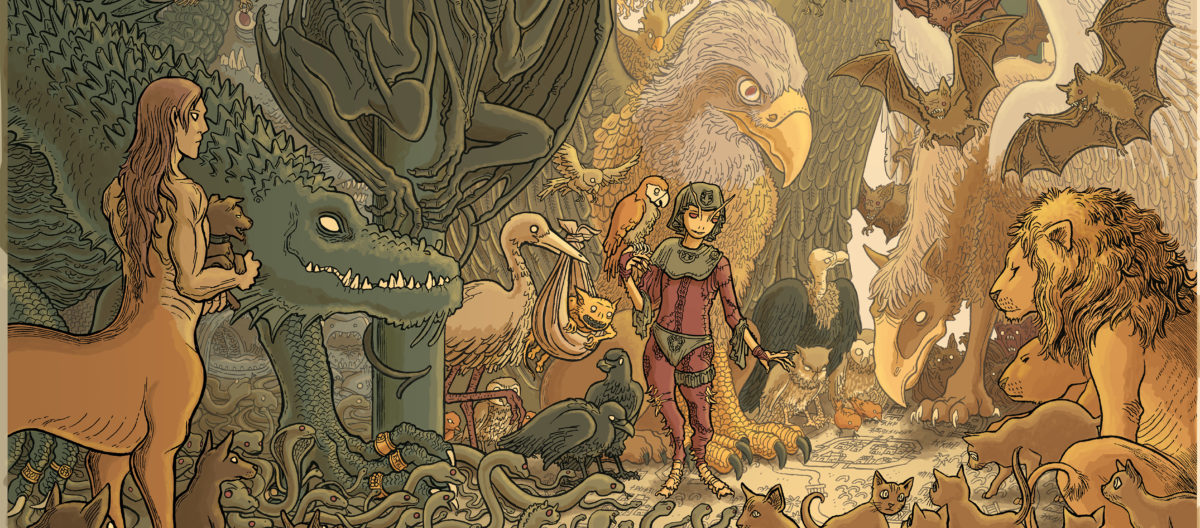Dreamland is a wordplay RPG. Once I had made the Word Tokens, the question was, how to use them in a game?
My intention was for a game where players and the DM would quickly, frequently exchange these Words, using them in flowery speeches at the table. Not whole sentences plucked out of Dunsany at once, like the Jack Vance sentences in “The Dying Earth”, but a constant spice of Words mixed to the speaker’s choosing. When you’re in a fantasy place, everything should sound like a fantasy story. The occasionally incongruous, stilted or goofy results of certain combinations of Words is a feature, not a bug…the formality is fairy-tale-ish and the weirdness is, after all, dreamlike.

The core mechanic of Dreamland is: you gather Words by making flowery speeches, and spend them as bonuses to actions by making more flowery speeches.
For example, say you were fighting a nightgaunt, and your target number to beat the nightgaunt is 6. If you have Fighting skill, you can roll your skill and try to get a 6. But even if you don’t have any Fighting ability, you can beat a nightgaunt if you…use your Words!
Say you have these Words in your hand…
snake(s)
centaurs(s)
distant
road
alone/lonely
wonder(ful)
To beat the nightgaunt, you must spend 6 Words by using them in a speech. You might say:
“I lash out with my sword, striking with the speed of a snake, the force of a centaur! I deal the nightgaunt a wonderful blow, knocking him back along the road, for I alone can defeat him! And with the blade arts I learned in a distant land, I stab him in the heart!”
Or you could say it in-character:
“Nightgaunt!! You foul snake! You’ll wish you had stayed in the distant mountains and left us alone! I’ll cut out your heart and leave your body to be trampled by centaurs in the road! Now face my sword of wonder!!”
…and in either case, you return the 6 Words to the discard pile, and then you have spent 6 Words and killed the nightgaunt.
Using Words represents the dreamers’ unconscious manipulation of Dreamland, the “power” they spend on they actions. Essentially, one thing I don’t like in RPGs is boring, mechanical descriptions (and thus, mechanical interactions between the players) during important moments. For an important fight you don’t want players saying “I hit him” and rolling some dice and the DM answering “he dies.” When players and the DM are narrating out the action in high fantasy style, the flow of the improvised narration is in itself a reward. Everything worth rolling dice over is worth making a flowery speech about.
Once I settled on this idea, the first question was: how do players get Words? Dreamland Words could be simply a storytelling activity or an improvisational tool (and indeed, I’ve shuffled through them to use them for ideas while DMing Dungeons & Dragons). But to make a true game you need an economy of powers and an element of randomness or scarcity; the possibility that players won’t have all the Words they need, or won’t have the specific type of Words they need. After trying several different methods, eventually I settled on the idea that the Words are stored in a common “Word Pool” on the table which is regularly replenished by the DM. (The exact maximum number is based on the number of players.) Players gather Words from the common Word Pool into their Personal Pool by raising their hand and making a speech. The common Word Pool is never empty, unless the players run out while in the middle of a challenge. However, you may not be assured of getting the exact type of Words you want to use… which leads to the next question.
The second question in developing the Words idea was: where’s the challenge? If you’ve got an endlessly replenishing pool of free points, what makes the game challenging? The answer is, some types of Words are ‘safe’ to use and some are not so safe. If a dreamer uses too many of the wrong type of Words, they unbalance the dreamscape and risk blowback. In game terms, this is known as breaking the pillars of Dreamland.
NEXT POST: Pillar Words and How to Destroy the Universe
